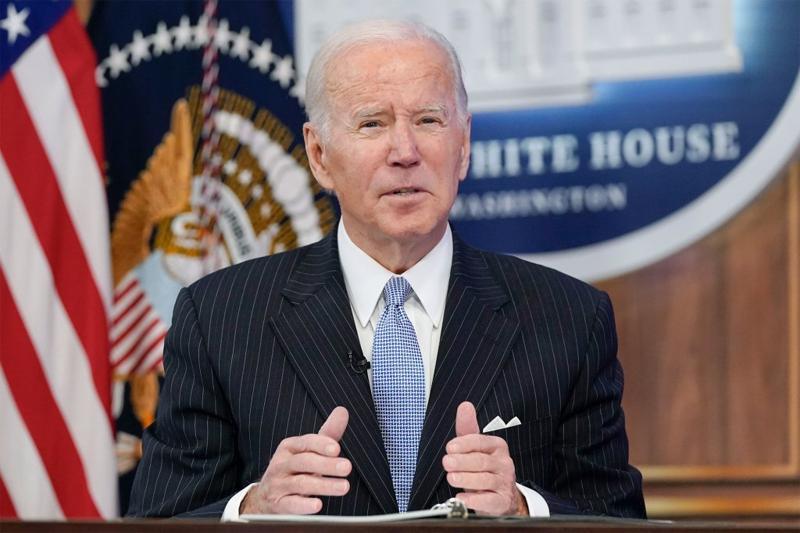Biden asks Congress to step in to halt looming pre-Christmas rail strike

President Biden called on Congress Monday to step in to prevent a potential rail strike that threatens an economic nightmare before Christmas after key unions voted to reject a deal brokered by the White House earlier this year.
“I am calling on Congress to pass legislation immediately to adopt the Tentative Agreement between railroad workers and operators – without any modifications or delay – to avert a potentially crippling national rail shutdown,” the president said in a statement, adding that his administration believes “there is no path to resolve the dispute at the bargaining table.”
The deal Biden wants to force upon 12 unions representing rail workers was tentatively agreed to in September, following a 20-hour negotiating session.
While the bargain averted a strike that would have begun Sept. 16, workers represented by the Sheet Metal, Air, Rail and Transportation Workers-Transportation Division (SMART-TD) have since refused to ratify the agreement, along with three other unions.
Eight freight rail unions — including the Brotherhood of Locomotive Engineers and Trainmen (BLET) the second-largest rail union — have voted to adopt the deal.
The agreement, which closely follows recommendations made by a Biden-appointed arbitration board in August, would give workers 24% raises and $5,000 in bonuses retroactive to 2020 — meaning the average employee would get an immediate payout of $11,000 if the deal is ratified.
Workers will also receive an additional day of paid leave per year as well as unpaid time off for doctor’s appointments and medical procedures without being penalized under attendance rules — a key union demand. Employee health insurance premiums will also be capped at 15% of the total plan cost.
However, dissenting unions have balked at the lack of paid sick days in the tentative agreement.
“As a proud pro-labor President, I am reluctant to override the ratification procedures and the views of those who voted against the agreement. But in this case – where the economic impact of a shutdown would hurt millions of other working people and families – I believe Congress must use its powers to adopt this deal,” Biden said, adding that he shares “workers’ concern about the inability to take leave to recover from illness or care for a sick family member.”
As many as 765,000 Americans could be put out of work in the first two weeks of a rail strike, according to the White House, which also said that parts of the country could lose access to chemicals that clean drinking water and feed for livestock.
A nationwide stoppage could cost the US economy more than $2 billion in lost output per day, according to a September analysis by the Association of American Railroads.
Under the federal Railway Labor Act of 1926, Congress can force train workers back on the job by passing legislation enshrining the terms of the provisional bargain.
House Speaker Nancy Pelosi (D-Calif.) issued a statement late Monday announcing that her chamber will take up legislation to adopt the September agreement later this week.
“As we consider Congressional action, we must recognize that railroads have been selling out to Wall Street to boost their bottom lines, making obscene profits while demanding more and more from railroad workers,” Pelosi said. “We are reluctant to bypass the standard ratification process for the Tentative Agreement — but we must act to prevent a catastrophic nationwide rail strike, which would grind our economy to a halt.”
The House speaker added that the bill taken up during the lame-duck session will not have “poison pills” or “changes to the negotiated terms”
“It is my hope that this necessary, strike-averting legislation will earn a strongly bipartisan vote,” she concluded.
Lawmakers have little time to avert a strike; the deadline for all 12 unions to ratify the agreement is Dec. 9, but the effects of a work stoppage could be felt several days in advance.